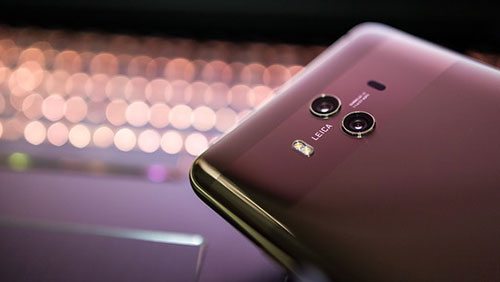 Someone once asked me if I missed the mayhem of owning a business at Christmas time. The truth is, I do.
Someone once asked me if I missed the mayhem of owning a business at Christmas time. The truth is, I do.
While I don’t miss taking inventory, all the extra hours, the squeeze of trying to find enough time for family and customers, figuring out if there should be a Christmas bonus or another program, organizing staff Christmas parties, and figuring out what to write on a card, there are things I do miss.
I miss the celebration, the binding together as a staff to get everything done before the holidays, the rush of customers, the extra time spent catching up with customers and sharing good wishes for the coming year, the feeling of satisfaction that a lot got accomplished today, this week, this year.
I also miss spending time with my staff and their families at a Christmas party and hearing sincere thanks for a bonus that will make a difference for their family.
In business, we don’t celebrate enough anymore. We’re too busy. We’re exhausted after the Christmas rush, the end of the year, preparing for the holidays.
Celebration is different than just a Christmas party or a staff event. Celebration means we find time to remember what we’ve accomplished. This is hard to do in modern society, never mind business.
And how do we make time?
Perhaps we take a day or two off work or away from the business. That’s time we can sit quietly really contemplating what we’ve done during the year. Or maybe we already know what we’ve accomplished and we spend time being thankful with our employees or partners, and relaxing in the memories of those accomplishments.
The problem is we never take time to truly celebrate. Sure, we’ll have a staff Christmas party but as owners, it’s often just another event that we have to get through, an obligation like taking inventory. We rarely take time to shut things off and contemplate.
Our phones are constantly with us, reminding us that our employees have a problem, that a customer has complained, that our family needs us right now.
It’s not the phone that’s the problem, it’s us as business people. We have an addiction to the device and it keeps us on a leash to our business. We worry that if we don’t have our phones, something will go wrong. “How will they contact us?” “What will happen if my customers can’t reach me 24/7?” “What will I miss if my phone is off?” “I won’t know what’s going on!”
Research shows that when we get a text, an email, or a message on our phones, something happens in our brains and chemicals get released by our body. We get excited. This is similar to what happens when an alcoholic gets a drink. We start to think we can’t live without that excitement and we can’t put our phones down. We have them on from early morning to late at night waiting for that next exciting message. What will it be about? Our brain rewards us when we hear that message come in.
The result is that when we have something we really should be celebrating – that big sale, those fabulous customers or an employee achievement – we feel the same as we do when we get another text. We’re gradually conditioned to feel that it’s not enough.
We feel a little blasé because it’s not meaningful to us anymore. But what is meaningful?
In business as in life, we need to celebrate the little things. The beautiful sunrise or sunset, the smiles on the faces of our children or grandchildren, the tender touch, and those wins, big and small. We need to remember that in order to feel like celebrating, it’s essential that we take time to contemplate what’s important and to relegate that unimportant text message to somewhere near the bottom of the pile.
Perhaps this is the Christmas that you have the guts to turn off the phone for a few days – okay, start with one day – and contemplate what you need to celebrate.
Once you realize that the world doesn’t need you to reply to every message right away, you might make a new year’s resolution to go device-free one day a week. It’s a novel idea but it might change your life.
Troy Media columnist David Fuller, MBA, is a certified professional business coach and author who helps business leaders ensure that their companies are successful. David is author of the book Profit Yourself Healthy.
The views, opinions and positions expressed by columnists and contributors are the author’s alone. They do not inherently or expressly reflect the views, opinions and/or positions of our publication.

